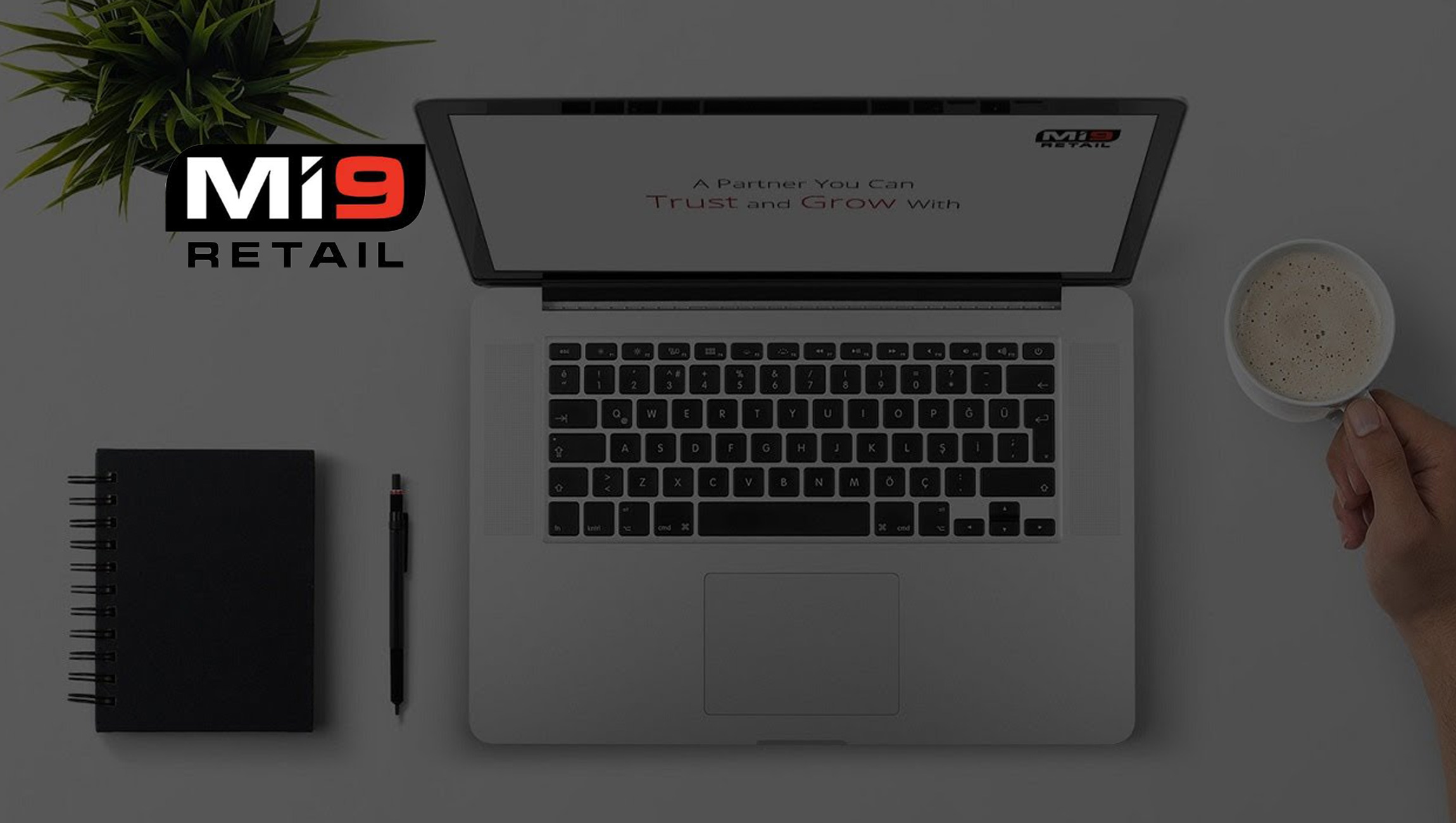Tell us about your role and how you got here? What inspired you to be part of an event management SaaS provider?
At etouches, I’m responsible for the company’s global marketing go-to market strategy. A key part of my role is to ensure that we are developing the right campaigns and demand-generation programs to target new prospects as we move them through the funnel via a digital omni-channel approach and off-line programs. I also ensure that we are maximizing the company’s exposure and positioning as a global leader in the event tech marketplace with the most innovative products and solutions.
For more than 20 years, I’ve been fortunate to lead global integrated marketing teams and programs for technology companies that specialize in enterprise software, cloud services, big data, and AI. I spent 13 years in senior strategy consulting and global marketing roles at Accenture. Now, I’m delighted to put that experience to use, driving exceptional results for etouches, as we continue our rapid growth trajectory and solidify our role as a leader in the event and meetings management technology space.
This is an exciting time to be at etouches, a fast-growing SaaS company, and I appreciate having the ability to focus on a growing market that is still relatively underpenetrated with a huge opportunity for growth. This was a big decision for me in terms of why I joined etouches. The company has a reputation for innovation; it’s redefining the future of the high-growth event management market through innovative and disruptive technologies. With offerings for venue sourcing and booking, mobile, and attendee engagement through real-time analytics, etouches is well-positioned to lead in the fast-growing global enterprise market.
What are the primary data points for marketers to leverage event management technology?
Event marketers today have the unprecedented ability to see how their events are performing in real-time and if their attendees are engaged at the event. Consider, for example, the impact these insights could deliver event performance: knowing which session topics and speakers are attracting the most attention; which campaigns are delivering the highest on-site conversions; who are the most influential participants based on their networking data; what attendees visited competitors’ booths instead of yours; understanding the areas of the show floor drawing the most (or least) traffic; and knowing shared characteristics of the most-engaged attendees.
It’s important for marketers to dial into their event’s objectives. Depending on how they define success, they can capture the right data and look at ROI on terms that are meaningful for their organization. Some of the most common metrics for event performance are: attendance; revenue; attendee engagement; registrations; brand awareness; qualified leads created; upsell and cross-sell opportunities created; and pipeline opportunities created, influenced, or closed because of the event.
When measuring performance, event marketers should look beyond data points for attendance and revenue. Metrics surrounding demand generation and pipeline acceleration are also crucial, especially now when event technology is creating innovative new ways to measure ROI.
For example, marketers can now analyze data to see if attendees are networking effectively, learning through relevant content, developing new business opportunities and more. Thanks to recent tech breakthroughs, event measurement is becoming much more sophisticated. It’s quickly evolving to be not only about attendance and revenue, but also about the effect the event has on an attendee’s relationships with brands and where they might be in their buying journey.
How do you measure influencer audience data and analytics for event marketing campaigns?
The biggest challenge for event marketers today is not only managing the tremendous influx of data, but also finding the best ways to use different data sets to identify attendee trends and behaviors.
From registration and demographics to email clicks and session attendance, events generate a goldmine of data. To gain a deep understanding of attendee behaviors, software that offers reporting and ROI tools throughout the event lifecycle is key. For example, the latest digital badges enable marketers to track how their event is performing through real-time attendee engagement. Marketers can follow the entire event journey of attendees who opt-in, including what sessions they attended, who they networked with, which exhibiter booths they visited, how long they stayed, and what content they downloaded.
Once marketers start to collect this information, they gain a treasure trove of fresh data they can use to improve marketing to the individual attendee and to a broader audience. Drawing upon attendance/traffic numbers or website/email clicks, marketers can make data-driven decisions on messaging, content (blogs, articles, white papers, webinars) and the meetings and events program as a whole. Those interactions also allow event organizers to provide their sponsors with key insights, which for example allows them to send curated content as a follow-up based on the attendees’ interactions at the booth.
Instead of just having a list of attendees devoid of context, marketers can know who attended the most sessions, who contributed to the community, who was the most engaged, and much, much more. Among other things, this enhanced perspective provides valuable insights on which attendees could make stellar brand advocates, or convert faster, or be open to upsell opportunities.
The important thing is not to focus technology on what the marketer needs; it’s more about leveraging these tools to create the best possible attendee experience before, during, and after the event. That’s the best way to generate data at scale. This allows marketers to gain the insights they need to engage influencers and advocates, drive conversions, and create better events for all participants.
What are the major challenges for businesses to leverage social media analytics for event marketing campaigns?
No event today would be complete without a social media component. One of social media’s standout benefits is it enables marketers to analyze reach and impact. How many people are Tweeting about the event? What are they saying? If the event has inspired attendees, social media is one of the channels they will use to talk about it. Those conversations are often streamed live at most events amplifying the conversation.
Still, There are challenges that come with social media marketing. How do you capture all the data from these channels? How can you collect the data in a format that makes it easy to compare across all your events? And what do you do if your event gets bad press?
A Social Media listening board can help marketers gather up information, including likes, shares, and impressions. Hootsuite, Google Alerts, and Mention are all great ways to collect comments about the event and compile conversations in one central location.
These tools provide a snapshot of how many attendees are talking about the event. Social media also offers qualitative metrics, meaning marketers can get valuable insights for improving present and future events.
However, what do you do about inaccurate or unflattering comments? Given social media’s vast reach, negative exposure can tarnish your event’s reputation if ignored. Use listening tools to monitor conversations and have someone dedicated to providing timely responses to all comments, both positive and negative.
How does etouches tie in with existing Data Management, CRM and marketing automation platforms?
etouches has integrations with marketing automation and CRM platforms, including Marketo, Oracle Eloqua, and Salesforce.
Integrating events seamlessly into the broader marketing and communications framework is essential. Marketing automation, event management software, and CRM platforms all work together to help marketers better engage attendees and prospects and convert leads.
Based on the nature of an event, useful data could exist in an organization’s marketing databases, or for internal meetings, on human resources platforms. By connecting these dots with data on event programming and participants, marketers can have at their fingertips the information they need to alert attendees to relevant conference sessions and activities. They can even suggest fellow delegates to meet based on shared interests to enhance networking.
Connecting data collected at the event to the CRM and Marketing Automation System, in turn, enables marketers to run more effective campaigns. Analyzing the data and understanding the lifecycle of leads acquired from an event, or from your own prospecting efforts, is critical in allowing marketers to move prospects through the marketing funnel and converting MQL (Marketing Qualified Leads) to SQL (Sales Qualified Leads). Using the right CRM and Marketing Automation Platforms allows you to know at which stage of the buyer journey your prospect might be allowing you to target them with the relevant targeted content. These insights are invaluable for personalizing and improving future sales and marketing outreach.
What startups are you watching/keen on right now?
I’m continuously looking at technology tools that can help improve our digital campaigns centered on SEO, PPC, and digital banner advertising. How do we do a better job at finding out what drove a prospect to our website, was it a keyword, a landing page with an offer, gated content, a digital banner? There are a number of Multi-Touch Attribution software companies that have been created in the last few years that look at ways to allocate credit towards marketing touchpoints that preceded a conversion within a customer journey, and they are definitely becoming more sophisticated. That’s an area where I’m focusing a great deal of my attention right now to ensure we find the right partner to help us execute our digital strategy.
What tools does your marketing stack currently consist of?
We use the full array of Marketing Technology, including Automation, CRM, Email, Content, Social Media, and Collaboration tools like Slack and Business Intelligence tool Tableau.
But to me, it’s more interesting to look at what an effective event marketing stack looks like. That stack should include robust Event Management Software (EMS) with tools for venue sourcing and booking, registration, event website, marketing, mobile event app, and on-site engagement and tracking tools with networking capabilities. To truly understand participant behaviors, the software must also offer reporting and ROI tools throughout the event lifecycle. These tools enable marketers to transform data into insights that enhance the event and inform future sales and marketing initiatives.
As mentioned earlier, EMS and CRM software work together to fully engage attendees and prospects, from pre-event to post-event. Pre-event outreach is especially important because the way you connect with attendees before the event – through digital engagement, communication channels, and social media outreach – starts to shape their experience. The more targeted your marketing pre-event, the smarter you can be about your attendees and sponsors in creating a unique experience for them.
Would you tell us about your standout digital campaign?
I’d rather defer to a customer for an enlightened campaign that pushed the digital marketing envelope, using cutting-edge event technology to drive exceptional results.
Our client, a leading Australia-based telecommunications firm, customized an event for thousands of VIP guests with its innovative, role-specific mobile event app. The company held a vendor and partner event showcasing disruptive technologies to industry leaders. To gain insights on attendees, it created an event app tailored to participants’ roles (delegate, sponsor, analyst, sales rep, etc.). At registration, attendees chose a profile. Then, the app made the event super relevant to each guest by delivering tech features and content tailored to his/her profile. For example, sponsors could create customized lead forms for their app that auto-populated via the booth visitor’s smart badge. This approach improved networking and enabled sponsors to capture significantly more leads.
In addition to customizing the experience, the role-specific app captured engagement data on attendees who opted in, including their interests and preferred sessions, speakers, activities, and products based on their behaviors at the event. With nearly all attendees using the app throughout the event, the marketing team was able to provide sponsors and exhibitors with robust quantitative ROI reports. The team also added fresh customer insights to the rest of its marketing stack to deliver customized content that nurtured relationships and drove business long after the event ended.
How do you prepare for an AI-centric world as a marketing leader?
As Event Marketing retools for the future, I believe we will see the rise of a new position – the chief marketing technology officer or CMTO. This is a natural progression, as technology’s role continues to grow in the marketing world.
Over the last few years, we’ve seen CMOs take on more responsibilities for the marketing infrastructure stack and data analysis. These tools are fast becoming vital to marketing and investment decisions. This is especially true in the meetings and events space, where we clearly see that combining technology and marketing adds value for all stakeholders.
The entire event experience as we know it is going through a complete transformation and event technology will only get more sophisticated in the coming years. Next-level artificial intelligence, virtual and augmented reality, cognitive learning, Bluetooth monitoring, voice recognition, and robotics are just some of the up-and-coming technologies in the events space.
The decision to leverage new technologies to create more meaningful attendee experiences, I believe, starts with marketing. That’s why it’s so important to look for event marketers with a background in technology and to continue educating employees on the latest tools and trends. The more insights you have, the better events you can build. The CMO (or future CMTO) plays a key role in providing guidance and leadership in this complex decision-making process. This is how we prepare for a world that realizes the full benefits of AI and many other tech breakthroughs on the horizon.
One word that best describes how you work.
Collaborative.
I believe in a flat organization where teams work collaboratively. I’m trying to adopt a more agile project management approach across my team to ensure we can launch campaigns and complete projects faster to better support our sales organization.
What apps/software/tools can’t you live without?
I use the Dark Sky app for weather, Pandora for music, Hotels Tonight for last-minute hotel offers when traveling. My team has convinced me to embrace Slack, the messenger and work collaboration tool. Finally, I couldn’t live without Uber.
What’s your smartest work-related shortcut or productivity hack?
I like to keep my team meetings to 30 minutes, and am a big believer that you should only focus on three key priorities in a day—anything more results in time mismanagement.
The white board in my office and flip charts are my best friends. I’m very visual so I like to ideate with the team real-time. I keep detailed notes of every meeting I’m in—yes, I’m still old school, so I write everything in an old-fashioned note book!
What are you currently reading? (What do you read, and how do you consume information?)
I try to read the WSJ every day, in addition to subscribing to Inc. and Fast Company. I also enjoy Outside Magazine and the Red Bull Bulletin. I’m currently reading Jony Ive’s new book “The Genius Behind Apple’s Greatest Products”.
What’s the best advice you’ve ever received?
If you want to be a good and effective leader don’t be afraid to hire people that are smarter than you.
Tag the one person in the industry whose answers to these questions you would love to read:
Thank you Chalva! That was fun and hope to see you back on MarTech Series soon.
Chalva is a senior marketing executive with experience leading complex global integrated marketing programs to support sales and lead generation for enterprise, business to business (SaaS, Big Data, Artificial Intelligence, Mobility, Security) and consumer clients. He has a strong marketing strategy and communications background. .
His primary focus area is centered on an integrated digital first marketing and brand strategy. Other areas of expertise include corporate communications, advertising, inbound marketing, SEO, analytics, media & analyst relations, thought leadership and global sponsorships. He is trilingual in English, French and Spanish with extensive business experience in North America, Latin America, Europe and Asia.

etouches is a global end-to-end event management software solution. The success oriented and cloud-based platform delivers innovative technology solutions to streamline the event process and increase ROI. Founded in 2008, etouches has assisted over 20,000 event professionals in planning, executing and measuring their events. With a focus on event sourcing, registration, marketing, logistics, engagement, mobile and data, the software solution has been able to serve more than 1,200 customers in corporations, associations, agencies and educational institutions. Headquartered in the United States in Norwalk, CT, the company has a second office in Orlando, Florida and five global offices in the United Kingdom, Belgium, Australia, UAE, and Singapore. Learn more about etouches at etouches.com.
The MTS Martech Interview Series is a fun Q&A style chat which we really enjoy doing with martech leaders. With inspiration from Lifehacker’s How I work interviews, the MarTech Series Interviews follows a two part format On Marketing Technology, and This Is How I Work. The format was chosen because when we decided to start an interview series with the biggest and brightest minds in martech – we wanted to get insight into two areas … one – their ideas on marketing tech and two – insights into the philosophy and methods that make these leaders tick.



